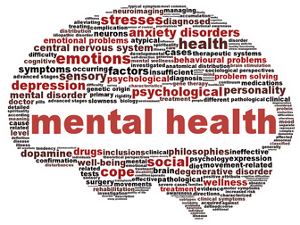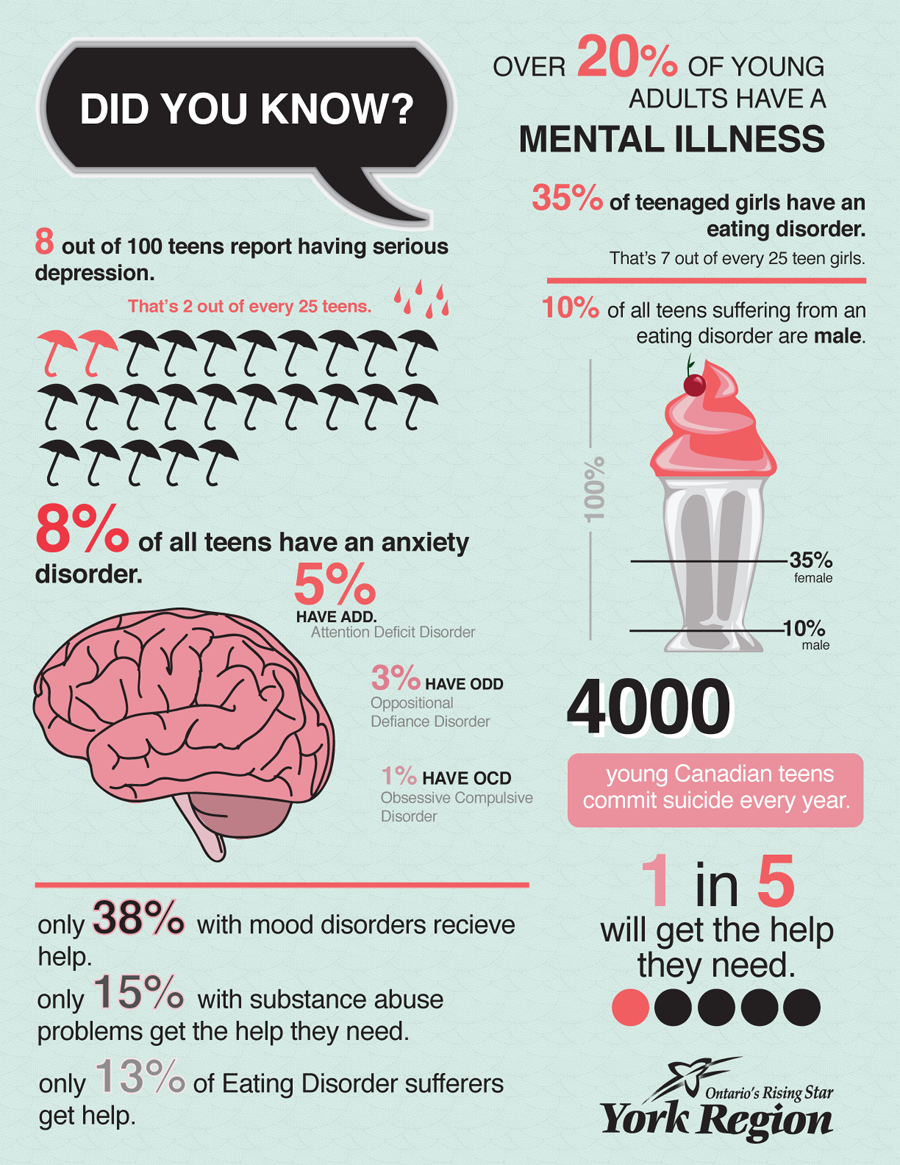One of the most difficult funerals I ever led was for a bright, unique, creative, athletic, young lady who died way too soon. Falon died by suicide at the age of 14. The funeral home was filled to the brim with her friends in soccer jerseys. A number of Falon’s friends were wearing a tube sock with the toe cut-off, pulled onto their forearm, to honour her signature fashion statement.She is not the only person I’ve known to die by suicide.
And she certainly is not the only person I know to struggle with mental health issues.
Our minds are both beautiful and fragile things.
Our minds need care, attention, and greater understanding.
Oh, how often we ignore the fragility of our minds, until they scream at us.
Oh, how often we ignore the fragility of others’ minds, blowing the person off.
Our churches can help people recognize the care and understanding our mind’s needs – and how beautifully interconnected we are as spiritual, physical, emotional and mental beings. However, it is all too common for churches and Christians to isolate the spiritual person from the physical, emotional and mental person. When we ignore the whole person, it is easy for people to assume certain parts of themselves either don’t matter or are unacceptable. We ignore the whole person to our peril.
Chances are you or someone close to you has struggled with mental health issues or mental illness.
20% of Canada’s Population lives with a mental illness.
More than 60% of people with mental health issues and mental illness will not seek the help they need, stigma is one of the main reasons.
In Canada there are 10 deaths by suicide per day.
Suicide is one of the top ten causes of death in Canada and suicide trends in youth and Aboriginal Canadians have reached epidemic proportions. Among those aged 15 to 24, it is the second leading cause of death next to accidents. Suicide and mental health are deeply connected; it is estimated that 90% of people who die by suicide were experiencing a mental health problem or illness.
These and many more helpful statistics can be found here: Mental health indicators in Canada
This current blog series is on hot topics. I wrestled with which “hot topics” are the most important to write about over the next few weeks. As I thought about mental illness I wondered if it should still be considered a hot topic. That’s the trouble, isn’t it? It is still treated like a hot topic, perhaps especially in the church. Mental health issues affect so many of us, but the church is often silent. Many of us have been silent ourselves. I have had Pastors tell me not to bring up such difficult topics. There still seems, in some churches, to be a stigma around mental illness, an underlying current that “those people” aren’t quite right, or if they had more faith God would help them and heal them or it is just too complicated. Sometimes I think it’s not the stigma that is keeping church leaders silent, it is just a complete loss on how to help, or what to do!
I’m trying to take my own advice from last week, on helping church leaders engage hot topics with grace and truth (Click here to see last week’s blog). So let’s think about this topic from a few perspectives – God’s heart for the issue, personal experiences and where the church could be of help.
God’s heart – Take some time to examine God’s heart for humanity and especially for the struggling. What does God’s grace and truth look like to those struggle with mental health issues?
I truly believe God pays special attention to those struggling in their mind. In numerous ways they could be considered the “outcasts”, the “forgotten”, and the “needy” of our day. All groups whom Jesus had time, attention and much grace for, when He walked this earth.
I think of how tenderly God treated Elijah, when Elijah prayed that he might die (1 Kings 19:4). God did not ignore the issue, He did not deny how Elijah was feeling, He did not give Elijah a kick in the butt or lecture him and tell him to get going. God tenderly saw and cared for Elijah – attending to his spiritual, physical, emotional and mental needs. Wherever you are, whatever you are feeling, whatever you are going through – God sees you. God cares for you. God knows you are a whole person, intricately connected spiritual, physical, emotionally and mentally. God created all of you. God cares for all of you and me, and all of His creation. God deeply loves and cares for those struggling with their mental health.
Personal experiences – develop your empathy for mental health issues by listening to the stories of those who have struggled, particularly listen to stories from those who have felt they had to hide their issues in the church.
Mental illness and mental health issues have touched every family and friend group, mine included.
In fact, I personally went through a period of depression, brought on by unrelenting circumstances. It was like my mind and body started betraying me. I didn’t sleep for weeks on end, I couldn’t focus enough to finish reading a paragraph, I lost control of my emotions, I lost weight and I just felt done, I had no fight left. This was a major shift for someone that was usually driven, passionate and energized.
It was a couple of brothers and sisters in Christ that help me recognized what was happening and supported me in getting the help I needed.
Thankful, I haven’t gone back there, but I too have felt the stigma from folks in the church that even now seem to always see me as wounded or fragile because of that one season. Mercifully, for me, the season did not last long and the help I received slowly got be back to a healthy equilibrium.
That short, personal brush with depression has given me lots of compassion for those that struggle with mental illness or issues, especially when for them it is a life-long struggle to find a healthy equilibrium.
What about you – can you think of stories, people, that help you sympathize with mental health issues? Who could you invite to share their story with you?
It doesn’t matter if you are a leader in the church, it can affect you.
If doesn’t matter if you are a strong, devote Christian, mental struggles and illness can affect anyone.
It is the stigma and quick judgments that make it seem easier for people to hide their stories or issues.
Shame makes us all want to hide.
Shame says there is something deeply flawed and wrong about me.
When it is me that is the problem, I want to hide.
Shame, stigma, keeps things hidden, and keeps people from finding the support and help they need.
Where the church can help – break the silence
Church – has our silence contributed to the shame around mental health issues?
What about instead of adding to the silence and shame, we invited conversations about mental health? What about playing your part to destigmatize mental health issues?
Churches, let’s turn the shame to a loving embrace.
Churches, let’s turn on the grace for those struggling with mental illness.
Churches, let’s invite those with mental illness to find a safe place, to belong and to gain the courage to reach out for more support.
Let me take a moment to talk to those who are struggling with mental health issues directly – If you are struggling, there is hope. The way things are today are not the way things have to be forever. There are people that want to walk with you through this. Things really can get better. You are not alone. Reach out.
With help, you really can get to a better place, where each day is not such a struggle and you have a much better quality of life. It starts with reaching out for help. Talk to someone.
Churches, especially leaders, here is what I really want to say to you – please break the silence around mental illness. Walking in both grace and truth on mental health issues means a commitment to understanding more about mental health and having a desire to seek the best for those who are in your midst struggling with mental health issues.
Church leaders (volunteers and paid), here is what we can do:
1. Talk about it – Start the conversations in your communities. Talk about mental health and suicide prevention in youth group, from the pulpit, in small groups, in support groups… It doesn’t need to take over and be something you talk about all the time, but it needs to be talked about on a regular enough basis that people realize it is a safe place to be broken, it is a safe place to struggle with mental illness. Give up the façade that Christians have it all together. The Gospel doesn’t say we have it all together, it says we live in a broken, grieving creation, we are all broken, and in need of a Saviour to walk with us daily. Talk about signs and symptoms for mental illness, talk about where to find help, share stories of those that have found help, talk about God in the midst of deep, dark valleys, talk about the range of emotions and mental states we see in the different characters in the Bible and open the conversations about mental health issues.
2. Develop a network – figure out ahead of time who are the resources in your city/town for those struggling with mental health issues, include medical professionals and professional counsellors in your network. These can be people you ask for advice. When you need to refer someone struggling with mental health issues to more help, this network gives you a ready made list.
3. Learn – Take a mental health first aid course. I’m a firm believe that every Pastor and every youth leader should have mental health first aid training. Read and learn what you can about mental health issues. Some resources to get you started are at the bottom of this post.
4. Encourage friendships – those who are walking through a mental illness need others who will walk with them in unconditionally love. Care-givers also need support. Be a friend.
I am by no means a counsellor or an expert on mental health issues. I simply recognize, I, for one, as a leader in the church, can do something to break the silence around mental health issues and illnesses. Will you join in breaking the silence?
Will you raise conversations about mental health in the places where you have influence?
Renée
@r_embree
For further research and reading on this topic, here are a few suggestions.
For teen mental health issues three helpful websites are:
• http://teenmentalhealth.org/
• yoomagazine.net
• Kids help phone – http://www.kidshelpphone.ca/teens/home/splash.aspx
For all:
• Canadian Mental Health Association https://www.cmha.ca/
• Mental Health Commission of Canada http://www.mentalhealthcommission.ca/
• Mental Health First Aid – http://www.mentalhealthfirstaid.ca/EN/Pages/default.aspx
• Center for Suicide Prevention – http://www.suicideinfo.ca/
• Healthy minds Canada – http://healthymindscanada.ca/
Materials on mental health in the church, in particular:
• Rapha Network – http://baptist-atlantic.ca/our-convention/departments/public-witness-and-social/
• Book – “Troubled Minds: Mental Illness and the Church’s Mission” By Amy Simpson (IVP, 2013)


